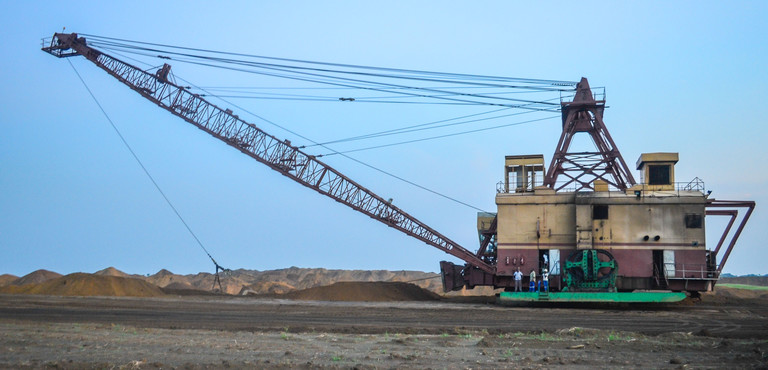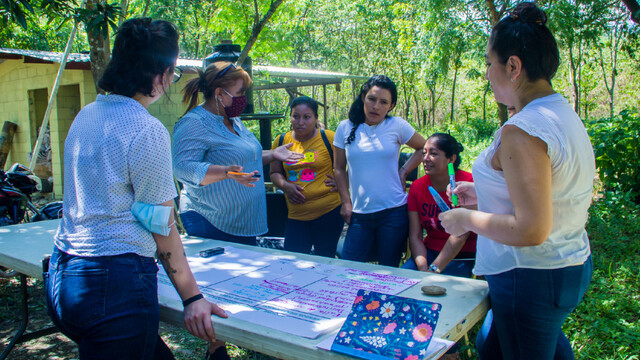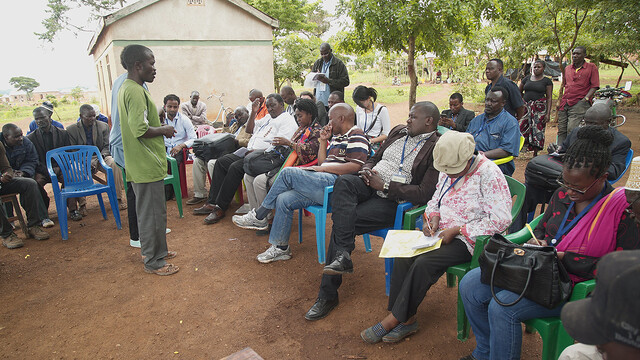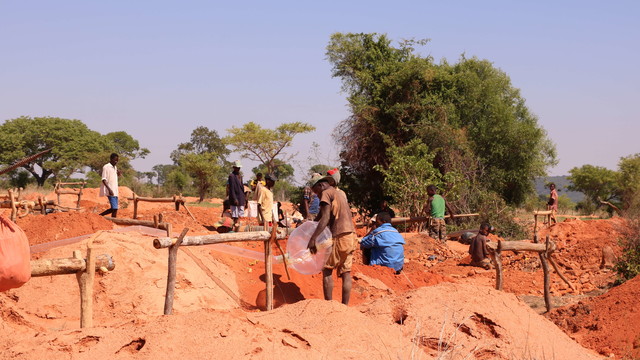Mining, Minerals and Sustainable Development (MMSD)
The Mining, Minerals and Sustainable Development Project (MMSD) was a research project looking at how the mining and minerals sector could contribute to the global transition to sustainable development.

Manganese mining in Gabon (Photo: jbdodane, Creative Commons, via Flickr)
Between 2000 and 2002, the Mining, Minerals and Sustainable Development (MMSD) project carried out research, analysis and consultation. This introduction describes what the project set out to do and the process that evolved to accomplish those goals.
 This page collates all the material previously available from the former website www.iied.org/mmsd. All project documents, including the MMSD Working paper Series, final reports, regional reports, project bulletins and workshop notes are available for free download.
This page collates all the material previously available from the former website www.iied.org/mmsd. All project documents, including the MMSD Working paper Series, final reports, regional reports, project bulletins and workshop notes are available for free download.
Introduction
The mining and minerals industry has come under tremendous pressure to improve its social, developmental and environmental performance. Like other parts of the corporate world, companies are more routinely expected to perform to ever higher standards of behaviour, going well beyond achieving the best rate of return for shareholders. They are also increasingly being asked to be more transparent and subject to third-party audit or review.
In response, a number of companies, either independently or with other actors, are establishing 'voluntary standards' that often go beyond any law. But even so, some observers remain suspect that many businesses are merely engaging in public relations exercises and doubt their sincerity.
In particular, the industry has been failing to convince some of its constituencies and stakeholders that it necessarily has the 'social licence to operate' in many areas of the world.
Despite the industry's undoubted importance in meeting the need for minerals and its significant contributions to economic and social development, concerns about aspects of its performance prevail. Mining, refining, and the use and disposal of minerals have in some instances led to significant local environmental and social damage.
It is not always clear that mining brings economic and social benefits to the host countries, as the minerals sector sometimes operates where there is poor governance, including corruption, and is thus associated with it. In some cases, communities and indigenous groups near or around mines allege human rights abuses. The litany of concerns is long.
Against this background, and with the tenth anniversary of the Rio Earth Summit in mind, in late 1998 nine of the largest mining companies decided to embark on a new initiative intended to achieve a serious change in the way industry approached today's problems.
They called this the Global Mining Initiative. It included a programme of internal reform, a review of the various associations they belonged to, and a rigorous study of the societal issues they had to face.
Through the World Business Council for Sustainable Development (WBCSD), they commissioned IIED to undertake a scoping study in May 1999 to set out the global challenge of sustainable development facing the mining sector and to propose the scope of a two-year process of participatory analysis to explore the role of the sector in the transition to sustainable development.
A team of IIED researchers reviewed existing initiatives and materials, and consulted more than 150 separate individuals and organisations to understand their views of how the minerals sector's contribution to sustainable development could be improved and to develop a more detailed framework for the process. The Mining and Energy Research Network (MERN) held an experts meeting to review the findings. There were few precedents to go by. The nearest was a project on the paper sector, conducted by IIED in partnership with the WBCSD in the mid-1990s.
There was also the comprehensive study of large dams, but it was conducted by a World Commission and at the time was just getting under way. While various 'multi-stakeholder' processes had been attempted, most were not convened on such a scale.
IIED published its results in October 1999, making recommendations for the design and scope of the process that became known as the MMSD Project.
A decade on: progress and new challenges
In 2012 IIED undertook a follow-up review of the sector and its activities. The discussion paper, MMSD+10: reflecting on a decade, was designed to encourage conversations with key stakeholders in the industry.
The report found that the mining and minerals industry has made major advances towards sustainability but the sector faces new challenges, as governments in the global South reassert control over their natural resources, while at the same time lacking the capacity to ensure mining can contribute to sustainable development.
Researchers noted that the study raised many questions about how well the mining industry has put sustainable development theory into practice.
Project documents
All project publications are available for free download. They can be browsed using the links below or you can search our Publications Library. If you cannot find what you are looking for, please contact us.















